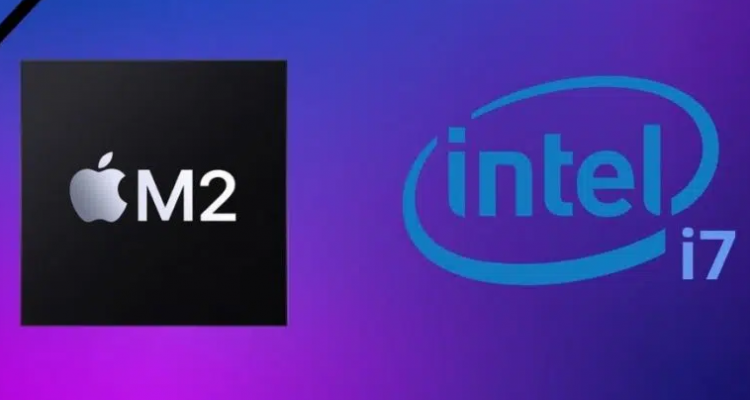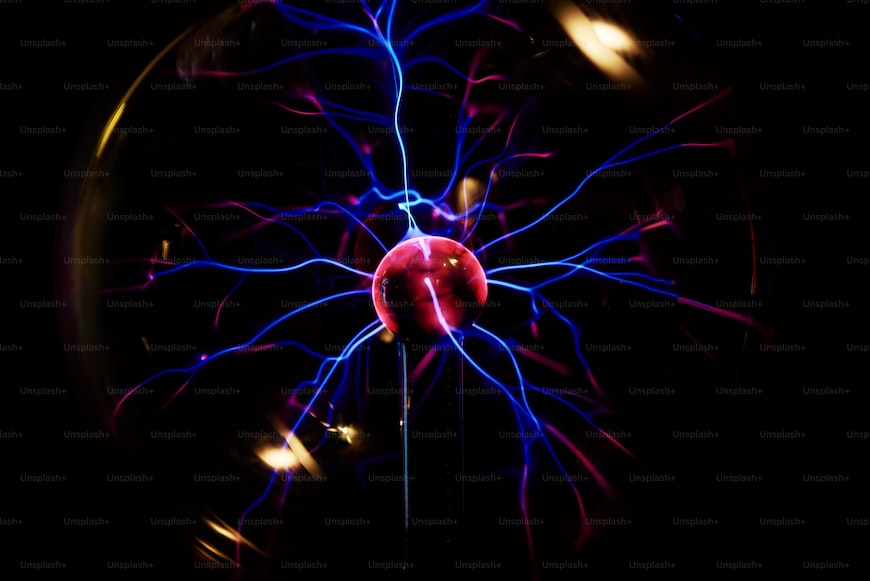The Apple M2 Chip was recently introduced; let’s see how it stacks up against the Intel Core i7.
At their most recent WWDC 2022 event, Apple unveiled its all-new Macs powered by the Apple M2. At the same event, Apple also announced a new chipset called Apple M2. The new MacBook Air and MacBook Pro notebook computers are powered by the M2 chipset. The M2 has up to 50% more memory bandwidth and up to 18% better performance than its predecessor, the M1. It’s a critical improvement over last year’s M1 chipset; Let’s see how it stacks up against the Core i7 chipset from Intel.
Up to 20 billion transistors are contained within the brand-new Apple M2, which was constructed using TSMC’s 5nm fabrication process. It has a CPU with 8 cores and support for up to 10 cores in the GPU. Additionally, the business asserts that its Neural Engine is up to 40% faster. Intel’s best CPUs were quite old when the M1 was released, but that is no longer the case. AMD, Intel’s main rival, and Apple, its sidekick, can’t compete with Intel’s new 12th generation CPUs.
Comparison of the Apple M2 and Intel Core i7 There is currently no report that compares both the chipset and statistics to determine which one is faster. Apple, on the other hand, compared the new M2 chipset to the Core i7 processor at the launch event. The company has never publicly defined its performance standards. Because public companies don’t make up things to avoid lawsuits, we have no doubt that it is true. Additionally, the comparison is solely based on that, so you should take it with a grain of salt.
Apple compared the M2 chipset to the 10-core Samsung Galaxy Book 2 360 laptops that were powered by Intel Core i7. As indicated by the examination done by the brand, the M2 chipset is 1.9X times quicker than the 10-center i7 chipset. Additionally, the company asserts that their chipset consumes significantly less power than the Galaxy Book2 360’s. This makes it clear that the M2 chipset is said to be faster and uses less power than the i7 chipset, which has 10 cores. Let’s move on to the second comparison, which produced some rather intriguing outcomes.
10-center based Intel Center i7
Macintosh contrasted its M2 chipset with the 12 Center i7-1260P in a MSI Renown 14 Evo PC in the subsequent examination. You might be surprised by Apple’s comparison slide. The 12-core Core i7 chipset performs better than the M2 chipset in terms of performance, but it uses less power. Yes, Apple acknowledges that the M2 chipset is slower than the 12-core Core i7 processor. However, the M2 chipset retains a power consumption advantage. The M2’s ability to deliver exceptional performance at a fraction of the power consumption of an Intel Core i7-1260P CPU is Apple’s main argument.
compared its M2 chipset to the 12-core Core i7-1260P It is important to note that the Core i7 is not always power hungry; When the chipset is used to its full potential, it doesn’t use more power. Intel has recently increased extremely high boost clocks by a few milliseconds or microseconds to improve responsiveness. When you clicked on a browser link, the chipset could spike up to 55 watts for a brief period of time before returning to low power consumption. In fact, the chipset would coast at low power consumption.
The comparison of the Apple M2 chipset and the Intel Core i7 was concluded. Although the M2 chipset outperformed the 10-core-based i7 chipset in terms of performance, it reportedly fell short of the 12-core-based i7. This makes it clear that the i7 chipset with 12 cores has a performance advantage. However, the M2 had a lower power consumption in both instances. What do you think about this? Please let us know by leaving a message in the space provided below.





